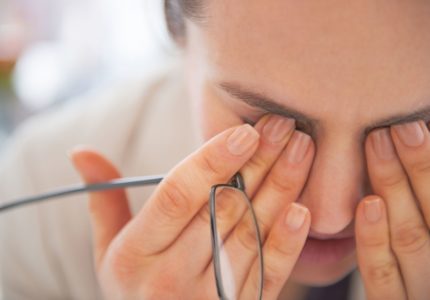Age. As we age, eyelids loosen and tear, and oil production decreases which will add to dry eye
symptoms and often worsen over time. Numerous dry eye therapies can help alleviate these
natural changes.
Contact lenses tend to soak up tears along with other substances which include allergens and
particles that can irritate the surface of the eyes. If a contact lens wearer has any other ocular
surface complications such as allergies, reduced tear production, or meibomian gland
dysfunction then the process of wearing a lens on the cornea can cause dry eye symptoms.
Screen time. Studies have shown that when we look at computers, tablets, or lit backgrounds,
we tend to not blink enough. For some reason, reading a book or a reader (Kindle) that mimics
paper does not affect us the same. Blinking is critical to keeping the surface of our eyes healthy.
Blinking stimulates the production of tears and meibum which is the oil that our eyelids produce.
Blinking also acts much like a windshield wiper in clearing the surface of the cornea.

Medications. Numerous prescriptions and over the counter medications can worsen dry eye
symptoms by reducing tear production. These may include antihistamines (allergy meds),
antidepressants, blood pressure medications, and sleep aids. Oftentimes these medications
are necessary for general health, however having a conversation with your eye doctor as well
as your primary care physician can be helpful in this decision making.
Systemic disease. Diabetes and autoimmune diseases such as rheumatoid arthritis, Lupus,
Sjogren’s syndrome and fibromyalgia are frequently associated with severe dry eye disease.
There are multiple prescription medications that can help treat this cause of dryness.
Ocular conditions such as blepharitis and glaucoma are common causes of dry eye. Ocular
surgeries including cataract and LASIK can also worsen the likelihood of having symptoms
associated with dry eyes.

Environment. Windy, dry or dusty environments can be difficult conditions to work in making
dryness worse. In the winter, indoor heating often exacerbates symptoms by decreasing the
humidity in the home.
Smoking and alcohol. Numerous studies have shown smoking to negatively affect the surface
of the eyes (along with causing cataract and macular degeneration). Alcohol also worsens dry
eye by acting as a diuretic dehydrating the body including the eyes.


